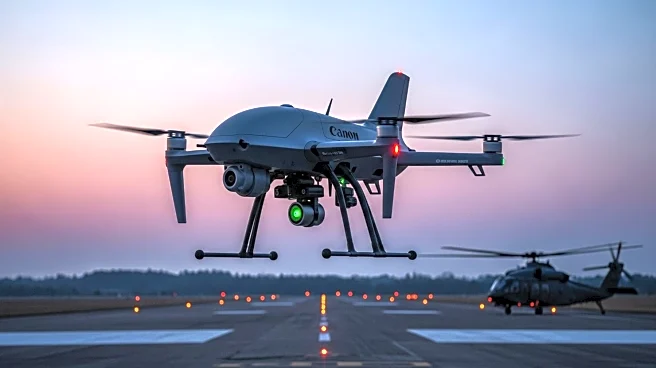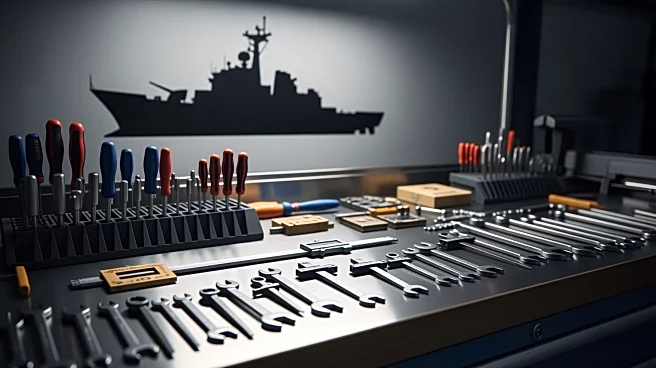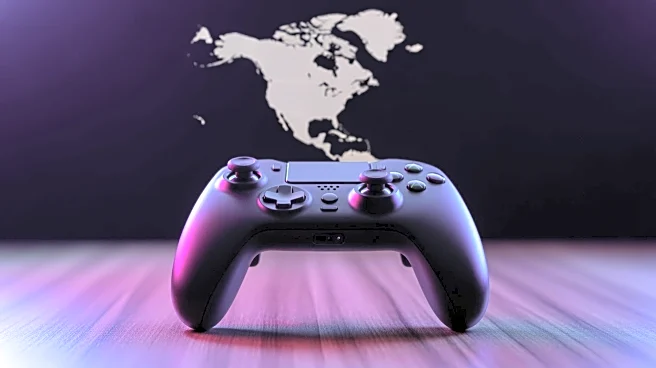What's Happening?
AV, a company formed by the merger of AeroVironment and BlueHalo, has introduced the Switchblade 400, a new loitering munition designed for the US Army's Low Altitude Stalking and Strike Ordnance (LASSO) program. The Switchblade 400 is a smaller and lighter version compared to its predecessors, the Switchblade 600 and 300. It features a 40 km range and weighs under 40 lbs, meeting the Army's requirements for an unmanned anti-tank weapon. The munition includes an electro-optical and infrared sensor, a Javelin multi-purpose warhead, and uses a rocket-assisted launch for a quieter deployment. The Switchblade 400 also incorporates an NVIDIA-based processor for automatic target recognition.
Why It's Important?
The introduction of the Switchblade 400 represents a significant advancement in military technology, offering enhanced capabilities for the US Army's LASSO program. This development is crucial as it provides the Army with a more efficient and versatile weapon system, potentially improving operational effectiveness in combat scenarios. The lighter and quieter launch system could offer tactical advantages, reducing detection risks during deployment. The integration of advanced sensors and processors enhances target recognition, which is vital for precision strikes. This innovation may influence future procurement decisions and set a new standard for loitering munitions in military operations.
What's Next?
The Switchblade 400's debut at the AUSA 2025 conference suggests that further testing and evaluation by the US Army will follow. The Army's response and feedback will likely determine the munition's adoption and integration into existing military strategies. As the Army continues to seek advancements in unmanned weapon systems, the Switchblade 400 could pave the way for future developments in loitering munitions. Stakeholders, including military leaders and defense contractors, will be closely monitoring the performance and potential deployment of this new technology.
Beyond the Headlines
The Switchblade 400's development highlights the ongoing trend of miniaturization and increased efficiency in military technology. This shift could lead to broader implications for defense strategies, emphasizing stealth and precision in combat operations. The ethical considerations surrounding autonomous weapon systems and their impact on warfare may also become a topic of discussion among policymakers and defense analysts.









